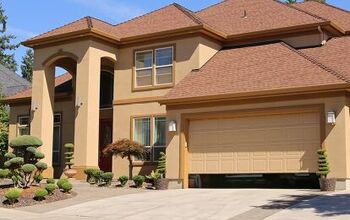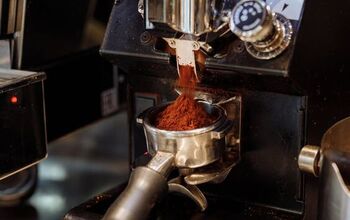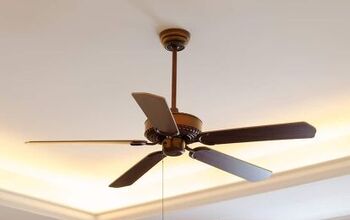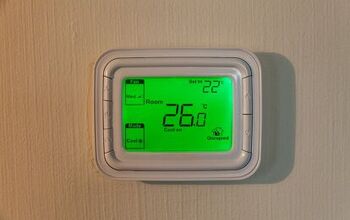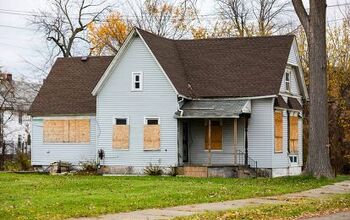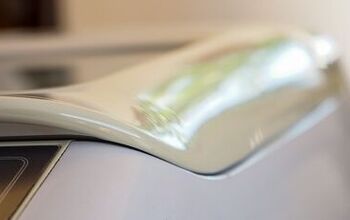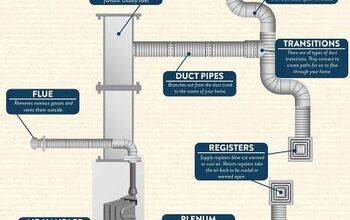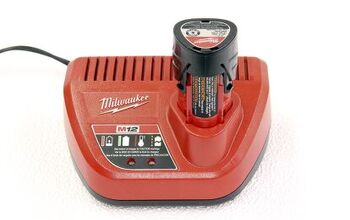Why Is My Garage Door So Loud?

Garage doors are essential to privacy and safety at home, but they can be quite annoying. That’s especially true if your garage door is particularly noisy. So, why is my garage door so loud?
Your garage door is likely loud because of worn tracks, rusty hinges, or loose nuts and bolts. A faulty belt drive or motor in the opener can also make a humming sound when your garage door opens. Otherwise, a loud garage may indicate unlubricated rollers, faulty springs, poor installation, or an imbalanced door.
It’s always worth the cost to hire a technician to install or repair a garage door. You can easily damage a garage door if you install it poorly, and it will run loudly. Follow along as we explore why your garage door is so loud and highlight easy fixes.
Why Is My Garage Door So Noisy?
1. Loose Bolts
Garage doors have several bolts and nuts that must stay tight to ensure a smooth, quiet performance. Over time, the nuts and bolts in your garage door can become loose after heavy use. You can tell that the nuts and bolts are loose if you hear your garage door rattle when you open and close it.
In that case, you must tighten them to stop your garage door from rattling. You can easily tighten loose nuts and bolts with a wrench, as long as you don’t screw them in too tight. Screwing them in too tight can lead to other problems and even cause damage.
Make sure to shut off your garage door’s power before you tighten the nuts and bolts. It’s dangerous to fix a garage door while the power is still on. You risk serious injury when you repair a garage door while the power is on, as it may open or close.
2. Faulty Springs
Your garage door’s springs can become dry and worn over time. Without lubrication, your garage door will vibrate and sound loud as it opens and closes. You can fix the problem if you lubricate them, but you may need to replace them altogether if they’re too worn.
It’s worth calling a professional technician to lubricate or replace the springs in your garage door. Springs have lots of tension, and they can injure you if they pop out of place. You can expect to spend up to $500 to replace the springs in your garage door.
It depends on the type of springs your garage door uses and how many must be replaced. Luckily, the average garage door spring can withstand 10,000 to 15,000 cycles. Modern garage door springs can last 10 years before you must replace them.
3. Unlubricated Rollers
Unlubricated rollers create loud, unpleasant sounds that are hard to ignore. Rollers can become dry after years of heavy use, especially if you live in an arid climate. Otherwise, dry rollers may indicate that they were never lubricated upon installation.
Luckily, you don’t need to replace worn rollers in many cases. You can typically fix the problem if you simply lubricate the rollers. However, it’s worth replacing the rollers if they are so worn that they are misshapen.
Rollers can become misshapen if you continue using your garage door for a long time while they’ve been unlubricated. Luckily, you can buy replacement garage door rollers for as little as $6 to $30 for a set. However, you can expect to spend up to $150 to replace your rollers if you hire professional help.
4. Worn Tracks
Your garage door will sound loud if the tracks are worn and warped. Garage door tracks must be even, or else the door won’t close correctly. Uneven garage tracks are noisy and can stop your door from closing properly.
Garage tracks become warped because of environmental factors, such as humidity and heat. Rust can also form on garage tracks and make it hard for the door to close. In minor cases, you can fix this problem if you simply lubricate the tracks.
Otherwise, you must likely replace the tracks altogether if they are too warped. You can expect to spend between $195 and $350 to replace each garage door track. This adds up quickly, but it’s essential if your tracks are beyond repair.
5. Rusty Hinges
Garage door hinges are made of metal, and naturally, they are prone to rust. Many homeowners forget to lubricate their garage door hinges. However, failure to do so can result in a loud garage door that doesn’t perform well.
You can fix this problem in minor cases if you lubricate your garage door hinges. That said, you must replace your hinges altogether if they are too worn and rusty. It’s best to hire a professional to replace your hinges as the garage door can fall once all hinges are removed.
You can expect to spend $50 to $200 per hinge, but costs vary based on who you hire. Otherwise, you can buy the hinges and do it yourself. However, you must exercise caution and replace one hinge at a time so the door doesn’t fall.
6. Faulty Opener
Your garage door opener is also susceptible to problems that can lead to noisy operation. Openers rely on chains and belt drivers to open and close your garage door. Parts can become loose and imbalanced, such as the screw drive, and scrape other components.
For example, a loose screw drive can rub against the track and produce a squealing or scraping sound. It could even be a problem with the motor itself, especially if it hums as it runs. Garage door openers typically only last 10 to 15 years.
It typically costs between $220 and $850 to replace a garage door opener. The cost varies based on the price of the opener and the technician’s labor rate. That said, it’s worth hiring a technician to replace your garage door opener, as it’s difficult to do yourself.
7. Door Imbalance
Garage doors must maintain balance to operate properly and quietly. Imbalanced garage doors are loud and often unexpectedly open on their own. Sometimes, a garage door won’t even open if it’s imbalanced because of the uneven weight distribution.
You can tell the door is imbalanced if you manually open it, release it, and see that one side dips lower than the other. A garage door can create friction as it rubs against surfaces when it is off balance. Not only is this bad for your house, but it can damage the door.
Garage doors often become imbalanced if they are poorly adjusted after installation. It can also happen because of problems with the opener’s belt drive. You can expect to spend between $150 and $350 to balance your garage door, depending on what’s wrong with it.
8. Poor Installation
Installation is everything when it comes to how well your garage door will perform. A poorly installed garage door can easily become imbalanced and perform loudly. This is a common problem for homeowners who install garage doors without professional help.
For example, you may have improperly installed the chain if you hear slapping sounds when you open your garage door. Squealing and rattling sounds can also occur if the springs, nuts, and bolts are installed poorly. This is a common problem for homeowners who mix and match parts instead of buying everything in a set.
You can save yourself a lot of time and money if you hire an experienced technician to install your garage door. Otherwise, you may have to hire a technician to fix your mistakes later. It typically costs between $800 and $1,500 to install a garage door with professional help.
Summing It Up
Your garage door is likely loud because of loose nuts and bolts or faulty springs. A loud garage door is often due to unlubricated rollers, worn tracks, and rusty hinges. Otherwise, it could be because of poor installation, an imbalanced door, or a faulty opener.
Related Guides:

Nick Durante is a professional writer with a primary focus on home improvement. When he is not writing about home improvement or taking on projects around the house, he likes to read and create art. He is always looking towards the newest trends in home improvement.
More by Nick Durante










